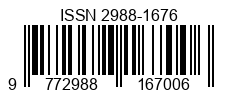Adaptasi Komunikasi Pasangan Perkawinan Campuran dalam Upaya Mencapai Kesepakatan Budaya Mendidik Anak
Keywords:
adaptation, agreement, coordinated management of meaning, educating children, mixed marriage, interculturalAbstract
Mixed marriage is a complex form of marriage that brings together two different cultural elements (intercultural). This study aims to determine how the adaptation of mixed marital communication in an effort to reach a cultural agreement to educate children. This study is a research with a descriptive qualitative constructivism paradigm. The informant selection technique is done by using purposive sampling technique with data collection techniques such as observation and in-depth interviews. The results showed that each informant had cultural differences that were interpreted differently by their partners. To be able to achieve the same meaning, there is a need for rules, constitutive and regulative, where in this study, differences occur more in constitutive rules. This research found that there are personal and interpersonal meanings that are influenced by the past experiences of each resource person. In terms of educating children, many speakers reach interpersonal meanings which make meaning adaptable and agreed upon together. Education is emphasized in the form of moral education, not just academic.






